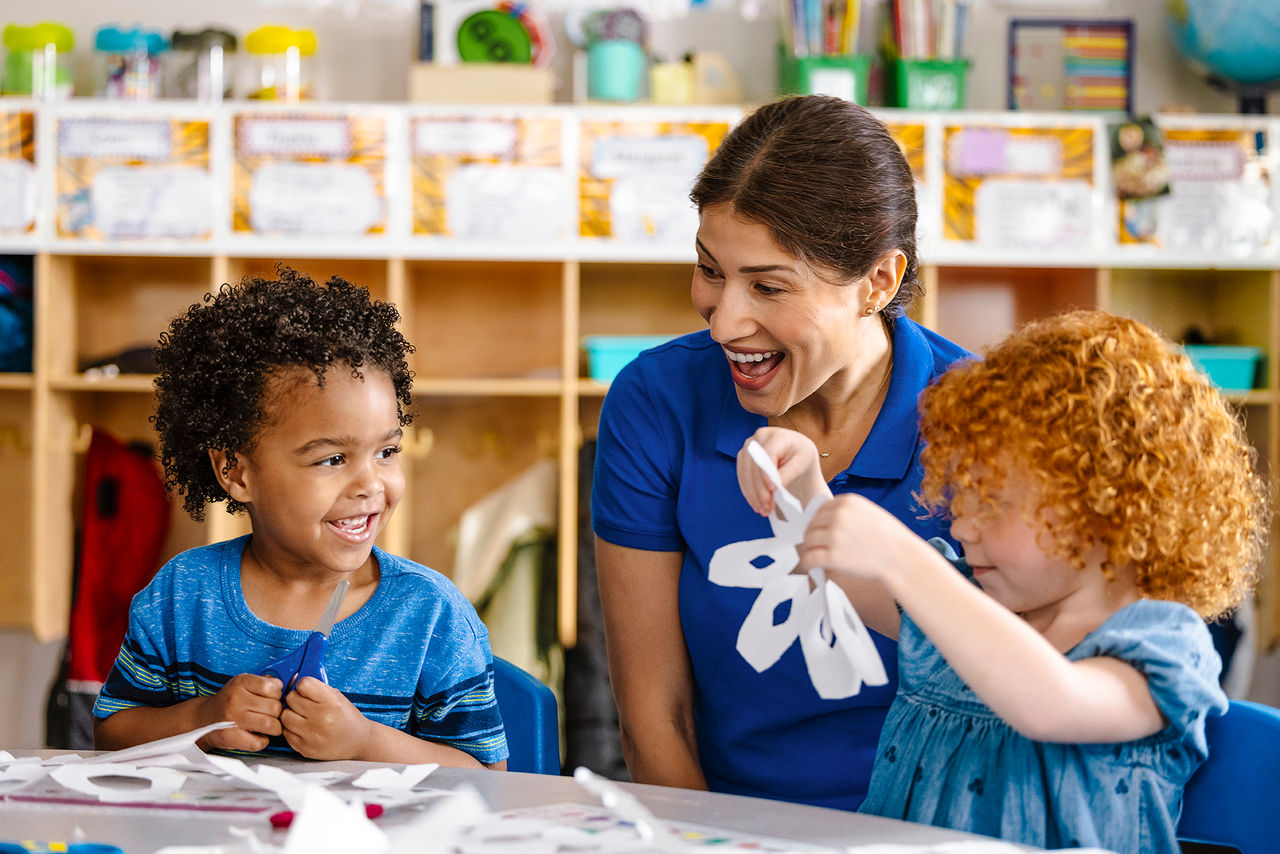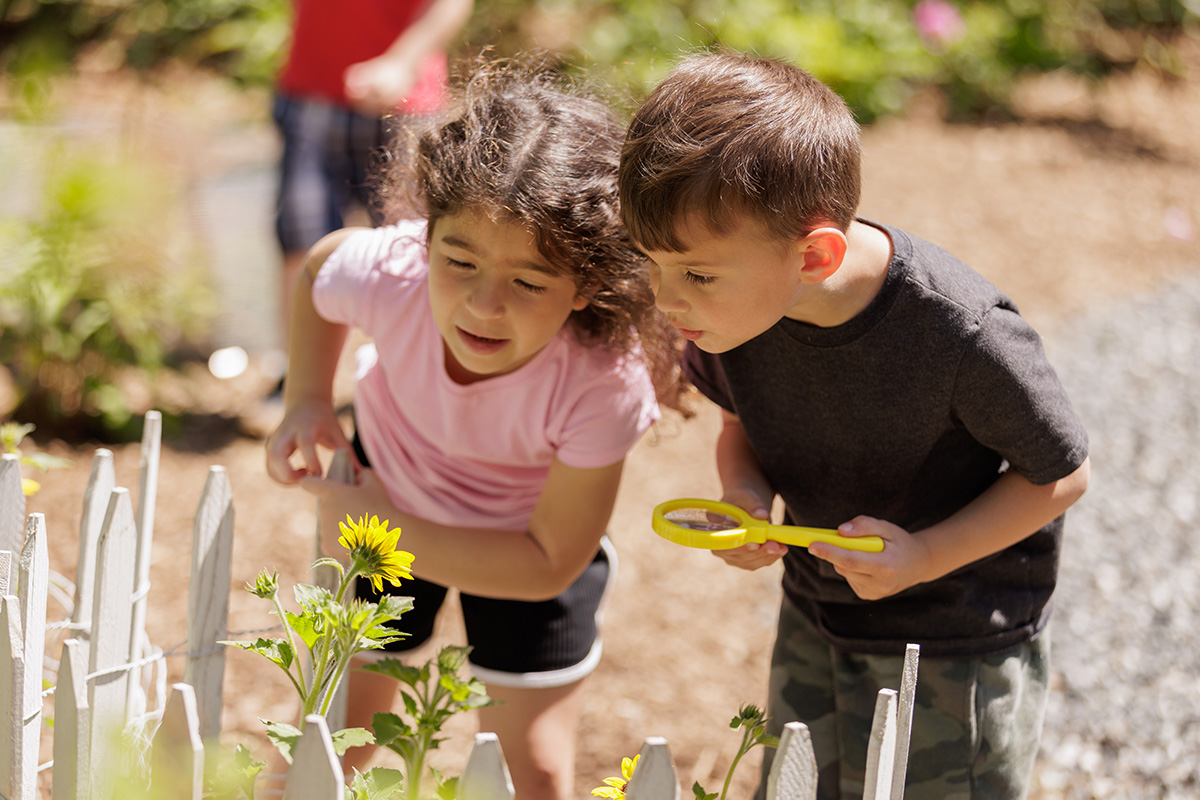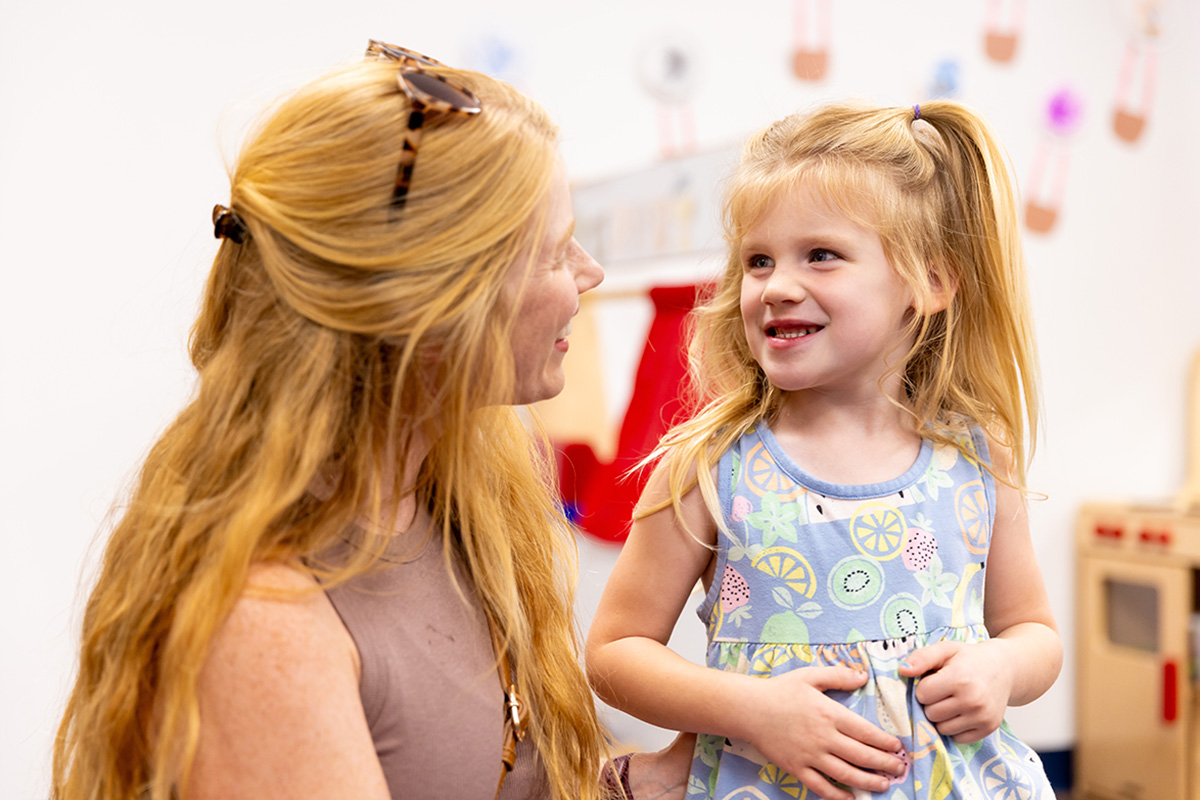“Curiosity is, without a doubt, the fuel that drives learning. Study after study has shown that when children want to know something, they learn it faster, more deeply and more lastingly.” – Susan Engel
What is Inquiry-Based Learning?
Children are naturally curious and have big questions about the world around them. Inquiry-based learning is a teaching and learning approach that embraces the natural curiosity and sense of wonder children bring into the classroom. It’s open-ended and empowers children to ask questions and discover the answers to build on their understanding of things. Through child-led and play-based experiences, children learn about themselves and others by exploring their interests, investigating concepts and asking questions.
Benefits of Inquiry-Based Learning
An inquiry-based curriculum fosters 21st-century skills like critical thinking, problem-solving and collaboration. The teacher’s role in inquiry-based learning is to guide students in their inquiry by gathering the tools and materials needed and creating an environment primed for wonder and exploration. Children consistently experience trial and error, evaluating outcomes and adjusting based on what they’ve discovered. For example, children say they want to make lemonade. Instead of pulling out a recipe and telling them what to do, a teacher might ask, “How do you think we make lemonade?” and gather all the children’s ideas. They will then test all the ideas out. By being actively involved in the process, the experience will resonate more deeply. Teachers may say the following during the process: “How many lemons did we juice? What do you do to make it sweeter? I wonder if we can add anything to make more… let’s try it out!” Through this inquiry-based approach, children are not just receiving information, but learning more deeply as they discover and make conclusions. The learning is contextual and because children are driving it, they are deeply interested in the process. When children engage in this kind of learning, they’re:
- Developing conversation and deep-thinking skills
- Extending their vocabulary
- Verbalizing their thought processes
- Cultivating their natural inclination to experiment
- Evaluating meaningfully using their mathematical skills
- Fostering their natural creativity and new knowledge.
Encouraging the Inquiry Process at Home
Wonder with them. Model curiosity by wondering aloud with your child. Meet their curiosity with your own, saying “Tell me more about that” or “I wonder why you think that.” Responding to their questions with more questions propels children into exercising their critical-thinking skills.
Allow them to problem-solve. When your child is attempting a challenge, ask guiding questions instead of giving them the answer, such as “I wonder if there is another way to do that?” or “Do you need me to hold anything for you?” Being supportive while still allowing them to think about how to solve the problem is empowering and boosts your child’s confidence.
Observe their process. You don’t need to intervene. As children experience something for the first time, they might not always understand how something is meant to work and that is ok. Give them space to explore. You might quietly observe, watching supportively and attentively, or you might narrate what they are doing: “You’re trying to figure out how to open that.” Holding back from doing it for them will help your little one develop perseverance and frustration tolerance.
Slow down. For your child to meaningfully explore or make informed decisions, they need time. Pausing to look outside and talk about the weather before getting the right outdoor footwear and clothing could take time. When possible, leave space for these kinds of conversations and experiences with your child. You may be amazed at what your child has to say or has discovered!




